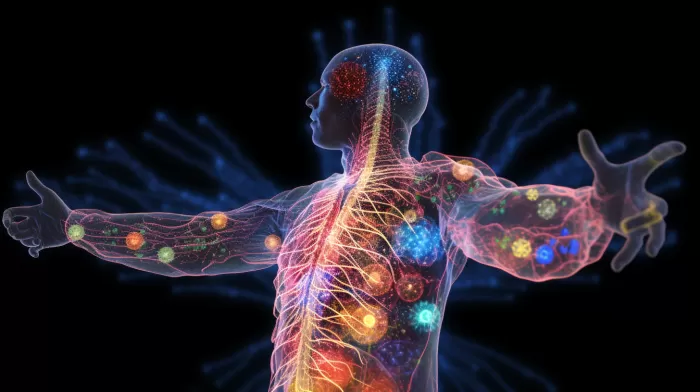Throughout the course of evolution, humans and bacteria have developed a close, symbiotic relationship. Our internal flora, otherwise known as our microbiota, perform many tasks that affect digestion, immunity, metabolism, and even mental health. Life could be extremely challenging, if not impossible, without them.
To give you an idea of the magnitude of this colonization, consider that bacteria outnumber human cells by 10 to one. In fact, it is estimated that 99 percent of the DNA in our bodies belongs to bacteria. They have hidden in plain sight for eons; but, at last, scientists are gaining a better understanding of their role in human biology.
This newfound understanding is leading to some incredible discoveries and startling therapies that are not for the faint-hearted. For example, fecal transplants into the digestive tract of someone with intestinal disease are now being used to treat drug-resistant microbes, restoring the critical internal balance that keeps pathogens under control. Similar treatments are helping people recover from metabolic syndrome, a precursor to type 2 diabetes. This is just the beginning — there is no telling how many new types of treatments will evolve from our new understanding of beneficial bacteria.
Maintaining the Balance
Researchers are finding that good health may depend on various bacterial species achieving an ideal balance. Common practices, such as the overuse of antibiotics in medicine and agriculture, can disrupt this balance. Chemicals in processed foods may also have a negative effect, along with chronic infections. These disruptions could be the root causes driving recent increases in autoimmune disorders, allergies, obesity, and numerous other conditions.
A recent study examined the microbiota in heart disease patients and found distinct differences between their bacterial makeup and those in the healthy control group. The researchers were particularly interested in bacteria from healthy people that produced carotenoids, a powerful group of antioxidants.
Another study showed that probiotics can help patients undergoing intense chemotherapy. These treatments are particularly hard on the intestines, but specific bacteria can help the body regenerate intestinal cells, and even determine the effectiveness of certain chemotherapy drugs.
Yet another study discovered that bacteria can increase bone density. And other research has shown that certain bacteria can help people lose visceral fat, considered the most dangerous variety.
The list of benefits goes on. Probiotics can help prevent diarrhea, bowel inflammation, and digestive tract infections. It is quite possible that, in the near future, we will get a probiotic prescription to treat irritable bowel syndrome, colds, eczema, Crohn’s disease, and even cancer.
Incorporating Good Bacteria into Your Diet
In the meantime, there are a number of probiotic foods that are rich in good bacteria. Fermented foods, such as yogurt, kefir, sauerkraut, and kimchee, are particularly beneficial. Yogurt contains Lactobacillus acidophilus, a bacteria that helps us digest dairy. These foods also contain digestive enzymes and have been shown to improve nutrient absorption.
There are various probiotic supplements on the market, but it is essential to get the right bacteria. In particular, look for Lactobacillus GG and Saccharomyces boulardii, which help prevent infections and diarrhea. Other beneficial bacteria include Lactobacillus bulgaricus, Lactobacillus casei, and Bifidobacteria.
Feeding the Good Bacteria
Of course, bacteria are living organisms, which means they need to eat. One way to enhance the growth of beneficial flora is to provide nutrition for them in the form of prebiotics. By giving bacteria the food they enjoy, we help them grow and maintain their balance in our digestive tract. Good prebiotic foods are Jerusalem artichokes, garlic, onions, chicory root, dandelion greens, and bananas.
Fascinating research suggests that the foods we eat might have the greatest impact on our individual microbiota. For example, traditional cultures that eat fewer processed foods exhibit increased diversity in their beneficial gut bacteria. One study looked at the microbiota of children from rural Africa who ate a high-fiber diet, compared with children from a region in Italy who consumed a modern Western diet. The African children had considerably higher levels of beneficial bacteria that produce essential short-chain fatty acids, which play critical roles in intestinal and overall health. The European children had higher levels of a bacteria type in the Firmicutes phyla, which may predispose someone to obesity. Other studies have demonstrated that changes in diet (for example, switching from a high-fat, high-protein diet to a lower-fat, high-fiber diet) can induce changes in gut microbiota within days.
While still in the early stages of research, these studies are important because they indicate that the foods we eat can have a much broader impact on health than previously believed. We may be able to create healthier microbiome communities within the body by shifting our diets, and it appears that healthy carbohydrates and fibers play an important role.
Supporting Digestive Health
Beyond probiotics and prebiotics, there are a variety of traditional herbs that benefit digestion and can support the growth of healthier microbiota. Pomegranate seed, pepper fruit, ginger, and lesser galangal root support circulation, bolster digestion, eliminate gas, and reduce acid.
The minerals chromium and zinc are also recommended, as they strengthen the digestive tract and modulate inflammation. Various digestive enzymes help us break down proteins, carbohydrates, and fats: amylase, alpha galactosidase, protease, phytase, invertase, and lipase.
These and other ingredients can all be found in an integrative digestive formula, which supports healthy digestion, alleviates heartburn and gas, and can reduce nausea and bloating.
Without a doubt, a healthy gut microbiome can influence health in ways we are only just beginning to understand. From respiratory health, immunity, and vital energy to brain and neurological protection, weight control, and more, these helpful bacteria are a truly unique asset to our overall wellness and quality of life.



